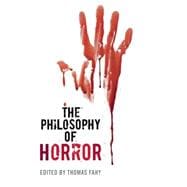
What is included with this book?
| Acknowledgments | p. vii |
| Introduction | p. 1 |
| Horror and the Idea of Everyday Life: On Skeptical Threats in Psycho and The Birds | p. 14 |
| Through a Mirror, Darkly: Art-Horror as a Medium for Moral Reflection | p. 33 |
| The Justification of Torture-Horror: Retribution and Sadism in Saw, Hostel, and The Devil's Rejects | p. 42 |
| Hobbes, Human Nature, and the Culture of American Violence in Truman Capote's In Cold Blood | p. 57 |
| Making Their Presence Known: TV's Ghost-Hunter Phenomenon in a "Post-" World | p. 72 |
| The Vampire with a Soul: Angel and the Quest for Identity | p. 86 |
| Ideological Formations of the Nuclear Family in The Hills Have Eyes | p. 102 |
| Zombies of the World, Unite: Class Struggle and Alienation in Land of the Dead | p. 121 |
| The Fall of the House of Ulmer: Europe vs. America in the Gothic Vision of The Black Cat | p. 137 |
| From Domestic Nightmares to the Nightmare of History: Uncanny Eruptions of Violence in King's and Kubrick's Versions of The Shining | p. 161 |
| "Hot with Rapture and Cold with Fear": Grotesque, Sublime, and Postmodern Transformations in Patrick Süskind's Perfume | p. 179 |
| Shock Value: A Deleuzean Encounter with James Purdy's Narrow Rooms | p. 199 |
| Making Monsters: The Philosophy of Reproduction in Mary Shelley's Frankenstein and the Universal Films Frankenstein and The Bride of Frankenstein | p. 212 |
| Kitsch and Camp and Things That Go Bump in the Night; or, Sontag and Adorno at the (Horror) Movies | p. 229 |
| Contributors | p. 245 |
| Index | p. 249 |
| Table of Contents provided by Ingram. All Rights Reserved. |
The New copy of this book will include any supplemental materials advertised. Please check the title of the book to determine if it should include any access cards, study guides, lab manuals, CDs, etc.
The Used, Rental and eBook copies of this book are not guaranteed to include any supplemental materials. Typically, only the book itself is included. This is true even if the title states it includes any access cards, study guides, lab manuals, CDs, etc.